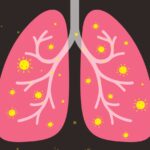The condition should be indicative of risk and complexity, and trigger an assessment for other preoperative risk factors.
People with chronic obstructive pulmonary disease who undergo major surgery are more likely to die in the year after surgery than similar patients without COPD, a large Canadian study has found.
“Because patients with COPD are often frail and have many health problems, their management around the time of surgery should address not only COPD but all their health issues,” said anaesthetist Dr Ashwin Sankar, assistant professor at the University of Toronto and lead author of the study.
The study, published in the Canadian Medical Association Journal, also found that COPD patients incur higher healthcare costs associated with the surgery, which includes hospital care, physician fees, rehabilitation and home care.
The population-based cohort study included more than 930,000 patients aged 35 years and older in Ontario who underwent major surgery from 2005 to 2019.
Surgeries included intermediate-to-high-risk procedures such as total hip or knee replacement, shoulder surgery, gastrointestinal surgery, vascular surgery, prostatectomy or hysterectomy.
Patients undergoing cardiac surgery were excluded, as were those who had previously undergone certain lung surgeries or repeat surgeries.
Around 20% of the patients had COPD at the time of surgery, and were more likely to be older, male, frail, have a lower income and have pre-existing conditions such as heart disease, diabetes and lung cancer.
The primary outcome was all-cause death in the year after surgery, and secondary outcome was total healthcare costs in the year after surgery.
In the year after surgery, almost 11% of patients with COPD died compared with fewer than 5% of patients without COPD, with up to a third of these deaths occurring within the first three months postoperatively.
After adjusting for demographic differences between the two groups, those with COPD were 61% more likely to die in the year following surgery than those without COPD. With further adjustment for comorbidities, the increased risk of death for patients with COPD versus those without was 26%.
Total healthcare costs (covering index hospital admission plus the year after admission) were around 13% higher for patients COPD.
Frailty, cancer and type of surgical procedure modified associations between COPD and outcomes, with orthopaedic and lower abdominal surgery posing a greater risk for those with COPD.
“From a practical perspective, determining the exact magnitude of elevated risk attributable to COPD has limited value for patients and clinicians,” the authors wrote.
“Clinicians should identify the presence of COPD as an indicator of risk and complexity, which should trigger further assessment for other meaningful and modifiable preoperative risk factors, including comorbidity, frailty and type of surgery.”
The strengths of the study included the large sample size, the comprehensive nature of data collected in the databases used and the long follow-up time.
Noting that other such studies had a typical follow-up period of only 30 days post-operatively, the authors suggested these may not have captured the true extent of impaired recovery in this complex patient group.
A limitation of the study was that there was no measure of COPD severity, with the authors suggesting work was needed to generate a definition of severe COPD that could predict increased risk of postoperative complications.





